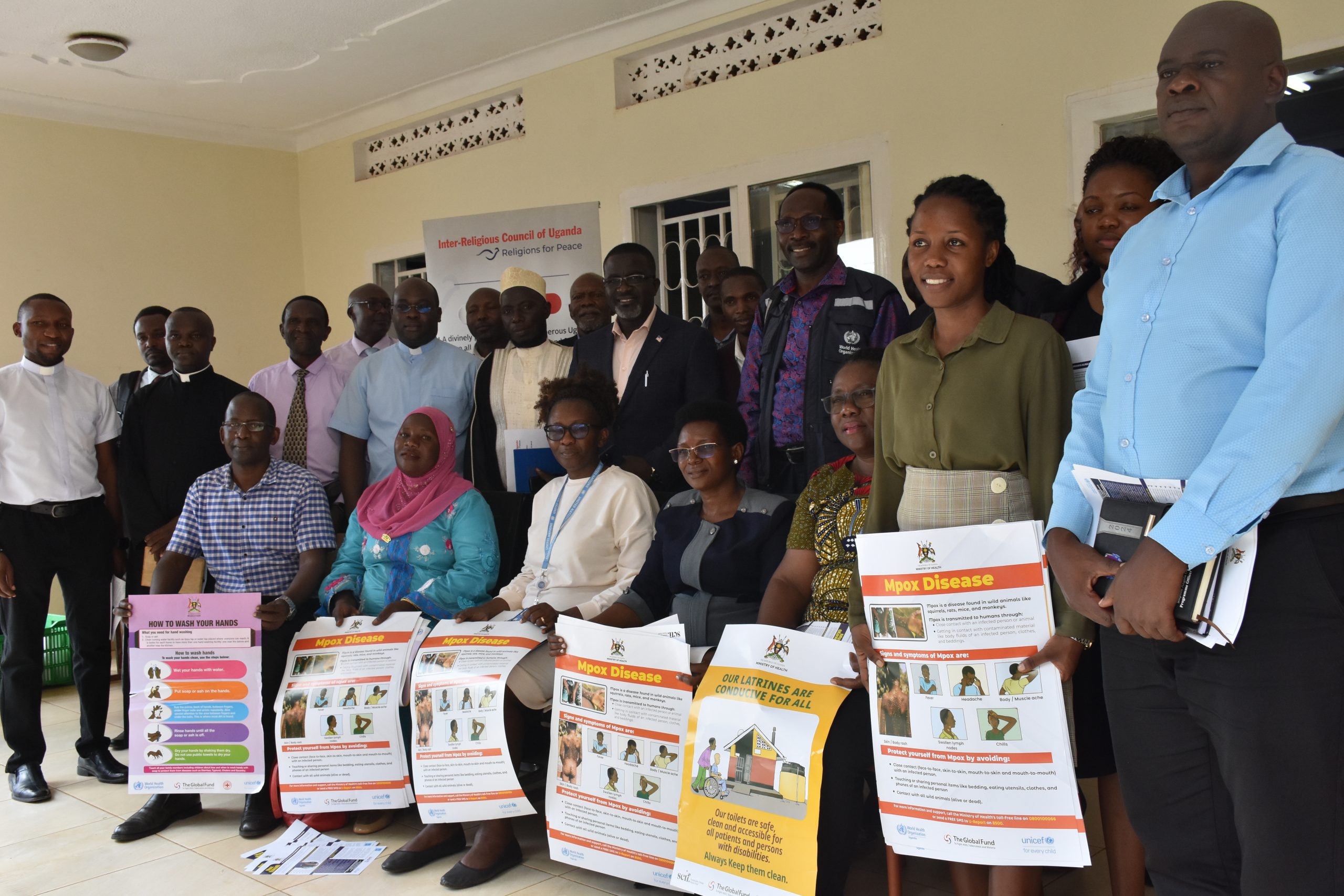IRCU HOLDS WORKSHOP FOR RELIGIOUS LEADERS ON M-POX VIRUS AS CASES RISE IN UGANDA
On November 12, religious leaders from member organizations of the Inter-Religious Council of Uganda (IRCU) gathered in at the IRCU secretariate, Kampala to deepen their understanding of the M-pox virus, following the rise of cases across the country. This educational workshop aimed to equip faith leaders with accurate information about the virus, enabling them to inform and protect their communities effectively.
Uganda currently has over 400 confirmed cases of M-pox, with patients receiving treatment in selected regional hospitals. The virus, formerly known as monkeypox, is primarily transmitted through close physical contact and has affected communities in various regions.
At the workshop, healthcare professionals presented information on the symptoms, transmission, and prevention of M-pox, emphasizing the importance of early detection and timely healthcare. They discussed practical ways that religious leaders can support ongoing public health efforts, such as educating congregants on preventive measures, reducing stigma, and promoting the importance of seeking medical help for symptoms like fever, swollen lymph nodes, and skin lesions.
Faith leaders were also briefed on the role they can play in managing misinformation surrounding M-pox, as well as in supporting the Ministry of Health’s initiatives to prevent further spread of the virus. Recognizing that religious leaders hold a respected position within their communities, the IRCU workshop underscored their influence in guiding people toward safe practices and fostering a spirit of empathy and care for those affected.
Over twenty religious leaders participated in an intensive training session led by representatives from the World Health Organization (WHO) and health officials from the Kampala Capital City Authority (KCCA) Rubaga Division. This session aimed to equip faith leaders with the skills to identify M-pox symptoms, advise on referral pathways, and promote preventive measures in their communities.
The training covered key areas including how to recognize M-pox symptoms—such as fever, rash, swollen lymph nodes, and muscle aches—and what actions to take if someone shows signs of infection. Health experts also provided guidance on referral pathways, ensuring that religious leaders can promptly direct suspected cases to the nearest health facilities equipped to handle M-pox cases. Preventive measures, including proper hygiene practices, social distancing where possible, and responsible use of personal protective equipment, were also emphasized as essential to stopping the spread of the virus.
The participating leaders committed to sharing M-pox prevention messages during sermons and gatherings at their places of worship, underscoring the importance of accurate information and community support. They acknowledged the critical role that faith institutions play in public health, particularly in times of crisis, and pledged to use their influence to dispel misinformation, reduce stigma, and encourage early medical intervention.
This collaboration between WHO, KCCA, and the Inter-Religious Council of Uganda (IRCU) highlights the significant impact that informed religious leaders can have in mobilizing their communities toward health consciousness and disease prevention. The IRCU is committed to continued collaboration with religious institutions to combat M-pox and other public health threats. By providing up-to-date, factual information to its members, IRCU aims to create a well-informed network of religious leaders who can play a proactive role in Uganda’s public health response.

